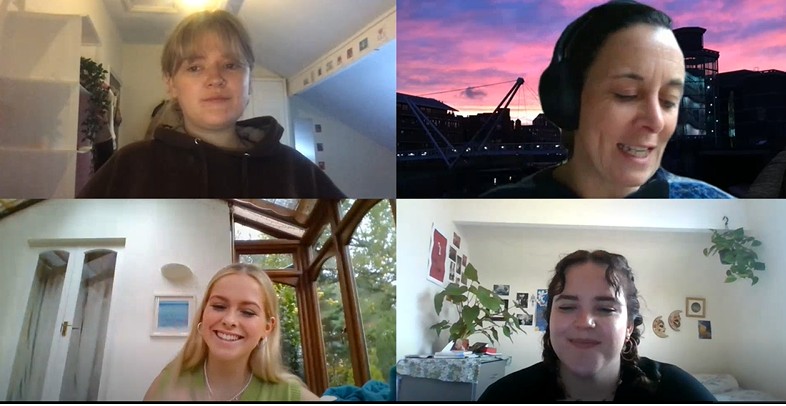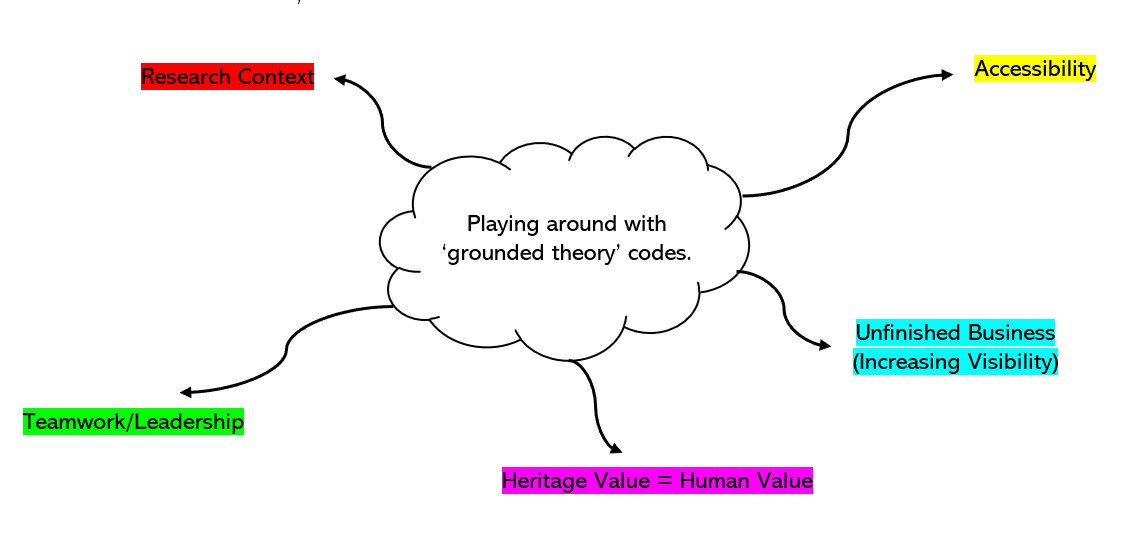When museums came alive

BA Liberal Arts student Millie Banks reflects on the learning journey she has undertaken through her participation in the evaluating impact project, and how she has come to understand and appreciate the role of the registrar.
Heritage is “the latest in a long line of opiates of society”.
As I read Raphael Samuel’s words down my nose last year, I sneered at heritage – along with its ‘disneyfied’ museum workers – as a thing best left in Britain’s colonial past. I am an expert, of course, on museums, in need of no real-world experience.
Truth be told, I loved to hate on museums. And I applied to do this project —“Evaluating Impact of Registrar Traineeship” — so I could spin some critical, heroic lines on Registrars…whatever that job title even meant.
But Jen Kaines (Head of Collection Services at the Royal Armouries) changed my mind.
Imagine: it’s November, it’s cold, it’s that morning you’ve set your alarm to interview some one who co-founded a bespoke programme – never done before in Britain – to train young Registrars…again, whatever that job title even meant.
I’d jotted down some themes, but as a team we’d decided to use a ‘guided interview’ approach, releasing me as spokesperson to follow-up on Jen’s unique responses with unplanned questions. Chaotic though it felt, I began to develop a research process based on lived experience.
“Do you feel like you’d have benefitted from this traineeship early on in your career?”, I thought aloud. To this, Jen unpacked why this programme’s combination of theoretical with practical mentorship leads Registrars into direct employment.
Jen shared in each Registrars’ personal success stories with such pride that Eureka! at this very moment it struck me: a Registrar’s role is about relationships. Yes it’s also legal, financial, stressful – but those dimensions cannot cut to its heart, beating loudest when a Registrar cares about people just as they care about a collection.
Katie Robson – a former NHS worker, now posted at the Royal Armouries in Leeds – captured this so beautifully in an interview months later: “it’s a transferable skill”, she mused. “We keep a medical record of an object’s history, just like a person’s, to show it proper care”.
This recurrent thread of ‘relationships’ weaves our first five interviews together – despite different anecdotes told to different spokespeople on different Zoom calls! It’s remarkable. As a team of three girls, we ping creative interpretations (loosely following ‘thick description’) off one another in our Facebook group chat, where we’ve built a real culture of trust.
Abigail Harrison-Moore – our perceptive, supportive tutor who co-founded this Registrar Traineeship with Jen – inspired us to collaboratively apply ‘grounded theory’ to each interview, kick-starting a cycle of analysis by which we colour-code transcripts. Each interview self-integrates into an ongoing comparison, Abigail promised.
So I should to abandon all those academic biases I began this project with?! I thought, uneasy about surrendering authorship to my qualitative data itself. With a reluctant toe dipped in ‘grounded theory’s’ unknown water, I practised applying it to my private journal. Here’s what codes emerged…

This experience drew-out another relationship; codes (from ‘teamwork’ to ‘human value’) inserted my development as a researcher into a decade-long narrative of this Registrar Traineeship. In particular, working with Abigail as a student appears to be a microscopic reflection of working with her programme as a Registrar.
Just as interviewee Sarah Murray (Registrar and Collections Manager, Leeds Museums and Galleries) described stretching whilst rewarding her trainee Emii’s skills, we as Abigail’s student team have started to feel comfortable outside of our comfort zones.
As my blue code indicates, we’re still gathering momentum. We want to raise further awareness around Registrars’ roles, partly through publishing interview highlights through a short online video.
Over first semester my positionality to museums shifted, as interactive research humanized their space.
Now, in second semester I’m here to uplift, rather than undermine, dialogues around caring about future collections.
More information
Further information about the Evaluating Impact Project can be found here.
Image
Online meeting for the evaluating impact project.
